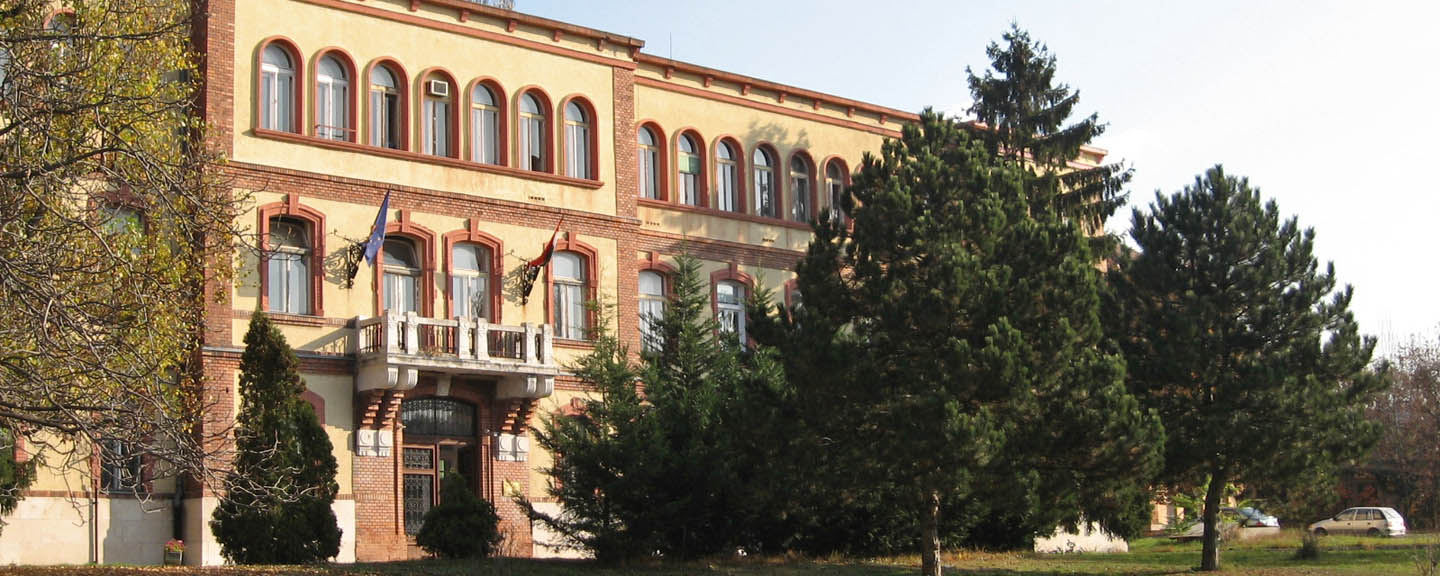INSTITUTE FOR SOIL SCIENCES
Soil (also known as the pedosphere) is an active or passive participant in the environmental processes between the atmosphere, the hydrosphere, the lithosphere and the biosphere, a unique place for their interactions. Soil is a complex system that varies in space and time, an environmental element with an interfacial position that has many anthropogenic functions and services. The formation and characteristics of the soil are determined by environmental factors, and itself reflects these natural factors and their changes in a complex way. The different functions of soil as an environmental element describe its role in the sustainment of life and the preservation of a liveable environment from different aspects. Functions for conversion, storage, filtration, dimming, feeding, preservation, etc., cover many material and energy transport processes. Soil is a conditionally renewable resource, the functions of which are often damaged for natural or anthropogenic reasons, therefore soils can deteriorate as a result of various degradation processes. Soil degradation is not an unavoidable and, above all, inevitable consequence of agricultural production as well as general social development. The adverse consequences of the processes can mostly be prevented, eliminated, but at least reduced to a certain tolerance.
The overarching goal of modern soil research is to help ensure that soil, as a natural resource, is sustainable in the long term, in addition to the global effects of climate change, overpopulation, and pollution. Soil properties are the result of environmental processes, which are influenced on the one hand by accelerating climate and environmental change, and on the other hand by the anthropogenic load that typically promotes soil degradation. In order to characterize the state of soils, to understand the environmental processes and feedback mechanisms affected by soils and to predict the effects of possible interventions, it is especially important to expand knowledge about soils, preserving previous knowledge while integrating and jointly evaluating the two.
Soils constitute a significant part of Hungary's natural resources, and their rational use, conservation and maintenance of their multiple functions require key and continuous conscious action from both socio-economic and environmental perspectives. For more than 70 years, TAKI has been conducting soil exploration and applied research, in which (i) the need to establish rational soil use for the improvement of human quality of life, (ii) the protection of soil "quality" and the maintenance of its multifunctional capacity, and (iii) the assessment, modelling and mapping of soil-environment interactions have always played an important role. TAKI is a multi- and interdisciplinary research institute, open to environmental and earth sciences as well as to more general agricultural disciplines (rural development, spatial planning, agricultural water management, etc.) and to environmental and nature conservation. The Institute carries out basic and applied research and development and contributes to the transfer of scientific and technical knowledge to society. The Institute's core research activities focus on the following cross-cutting and interdisciplinary research tasks:
- the interactions of the soil-plant environment, the water, material and energy circulation of soils, the quantitative and qualitative changes of soil organic matter, the movement of organic and inorganic pollutants in the soil-plant system, the exploration of soil microbial and macro level communities, spatial and temporal modeling of soil cover knowledge;
- the use of soil biomass for environmental indication purposes, the utilization of bio-waste and sewage sludge suitable for soil improvement or alternative nutrient replenishment, the support of circular economy objectives, the mapping of soil cover characteristics and processes, and the modeling of water and turnover processes;
- clarification of the role of soil in greenhouse gas traffic with different land use and management, short- and long-term study of the relationship between soil nutrient supply and fertilizer effects; assessment and mapping of degradation processes to the detriment of soil functions at different scales; development of survey methods for monitoring soil conditions and processes;
- soil database and spatial data infrastructure, as well as the operation and continuous development of an environmentally friendly nutrient management advisory system, support for policy tasks affecting soil and environment interactions.
In connection with the other tasks of the Research Center in correlation with the basic research activities of the Institute:
- publishes scientific, professional and educational publications,
- cooperates with Hungarian research institutes, conducts joint researches with them;
- promotes the presence of Hungarian soil, earth and environmental research in the international scientific life;
- encourages and facilitates the social and economic utilization of the results of scientific research;
- in cooperation with higher education institutions, participates in teaching, joint research, training and advanced studies tasks.

